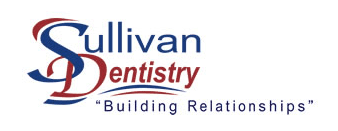Is it really safe to indulge in your favorite coffee after having a tooth removed? At Sullivan Dentistry, we understand the importance of this question and are here to guide you through the dos and don’ts of post-extraction care, including when it’s safe to sip on your beloved brew again.
Impact on Blood Clot Formation
After undergoing a tooth removal, it’s crucial to ensure proper healing, and one of the key factors in this process is the formation of a blood clot at the extraction site. Drinking coffee, especially hot coffee, shortly after your procedure can pose risks to this delicate healing phase. The warmth and slight acidity of coffee can increase blood flow and potentially dissolve the forming blood clot, leading to a painful condition known as dry socket. This condition not only delays healing but can also lead to further complications, making it essential to consider your beverage choices post-surgery carefully.
For those curious about what to expect during and after a tooth extraction, including detailed advice on post-operative care, reading about an Awake Tooth Removal Experience: What to Expect can provide valuable insights. This resource emphasizes the importance of following your dentist’s guidelines, which often include dietary restrictions such as avoiding hot beverages like coffee immediately after the procedure. By understanding the impact of your diet on blood clot formation, you can take proactive steps towards a smoother and quicker recovery.
Coffee Temperature and Healing Process
When considering whether it’s safe to drink coffee after tooth removal, the temperature of the coffee is a crucial factor to consider. Hot beverages, including coffee, can potentially disrupt the healing process. The heat can increase swelling, cause discomfort, and even dissolve the blood clot that forms in the socket—a condition known as dry socket, which can lead to infection and prolonged healing times. Therefore, it’s advisable to wait until your coffee has cooled to a warm or lukewarm temperature before drinking. This precaution helps protect the integrity of the healing site and ensures that the recovery process remains on track.
On the other hand, cold brew or iced coffee might seem like a safer alternative. However, it’s important to proceed with caution. The sucking motion required to drink through a straw can also dislodge the blood clot at the extraction site, leading to similar complications as consuming hot beverages. In summary, if you choose to drink coffee after tooth removal, ensure it’s at a mild temperature and avoid using a straw. For personalized advice and more information on post-extraction care, consider reaching out to Your Mukwonago tooth extraction specialists. They can provide tailored recommendations to ensure your healing process is smooth and complication-free.
Alternatives to Hot Coffee
After a tooth removal, it’s crucial to avoid hot beverages like coffee to prevent complications such as dry socket and increased pain. However, this doesn’t mean you have to give up your beloved coffee ritual entirely. Opting for cold brew or iced coffee can be a safer alternative, as these options do not involve high temperatures that can aggravate the extraction site. Additionally, decaffeinated versions can help minimize any potential effects on healing, as caffeine can sometimes slow down the recovery process. For those looking for non-coffee alternatives, herbal teas served lukewarm or cold can also provide a comforting and safe beverage choice during your recovery period. These alternatives ensure you still enjoy a satisfying drink without risking your oral health post-surgery.
Timing: When to Resume Coffee
After undergoing tooth removal, many patients wonder when it’s safe to resume their beloved coffee routine. The timing is crucial to avoid complications such as dry socket, a painful condition that can delay healing. Generally, dentists recommend waiting at least 48 hours before consuming hot beverages like coffee. This period allows the blood clot that forms in the extraction site to stabilize and the healing process to begin. However, it’s essential to follow your dentist’s specific advice, as individual recovery times may vary. Opting for cold brew or iced coffee as a gentler alternative during the initial days post-surgery can also be a safer choice, ensuring you don’t miss out on your caffeine fix while safeguarding your oral health. For more expert dental advice, visit Sullivan Dentistry.
Tips for Safe Coffee Consumption
After having a tooth removed, it’s crucial to approach your coffee habit with caution to ensure a smooth recovery. To safely enjoy coffee post-tooth extraction, consider waiting at least 48 hours before indulging in your first cup. This waiting period allows the initial healing process to begin, reducing the risk of disrupting the blood clot that forms in the extraction site. Opt for lukewarm or cold coffee instead of hot beverages to avoid irritating the sensitive area. Additionally, steer clear of using a straw when drinking your coffee, as the suction can dislodge the protective blood clot, leading to complications such as dry socket. By following these simple tips, you can enjoy your coffee without compromising your oral health during the recovery phase.
Conclusion
For personalized advice on coffee consumption after tooth removal, contact Sullivan Dentistry at 262-363-4114 or read our reviews on Google Maps.
